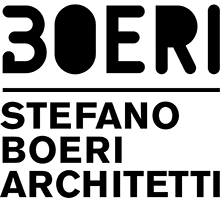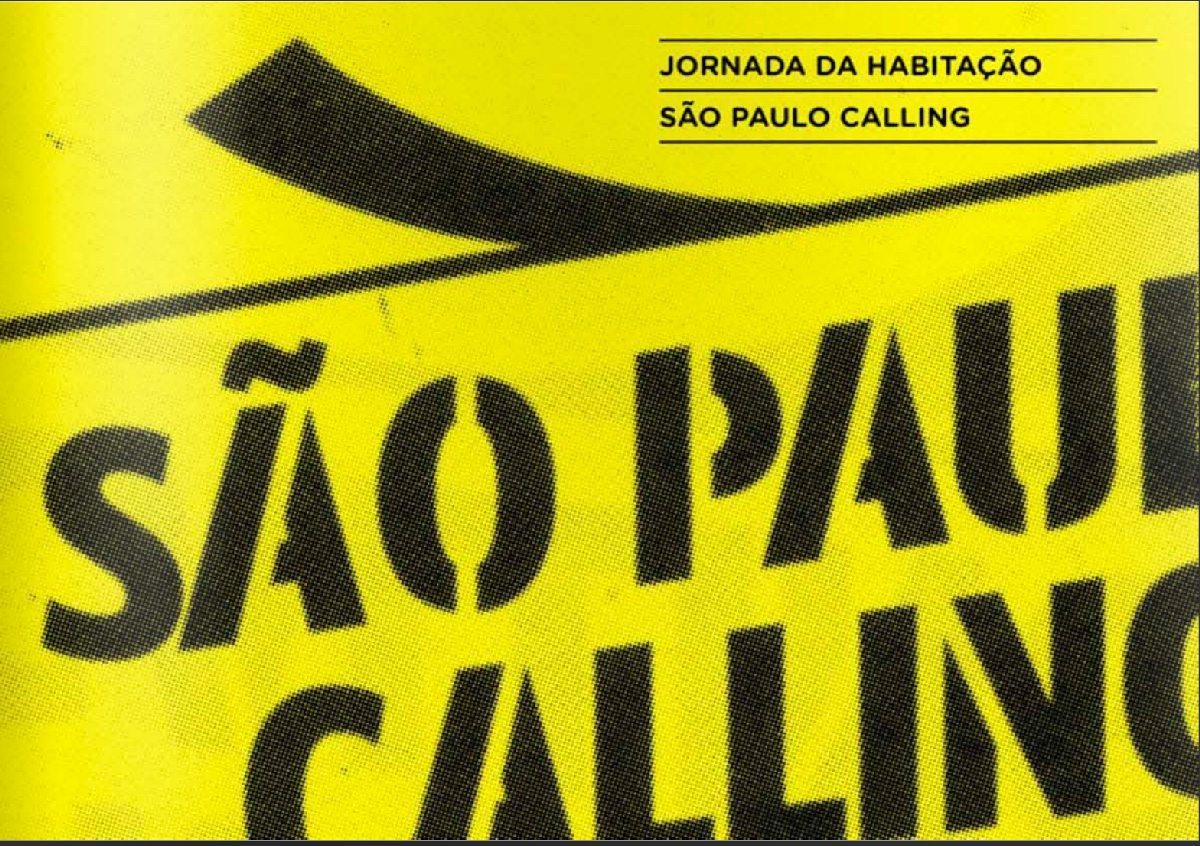Tomorrow 27th january 2012 will start in Centro Cultural Sao Paulo (Brazil)” Sao Paulo Calling”
a project about informal settlements, promoted by the Segretaria de Habitaçao of Sao Paulo and curated by Stefano Boeri.
Since the 1980’s the liberalization of the global market and the unprecedented expansion of many world’s cities have generated such complex and extended metropolitan situations that many local and state administrations have been unable to plan and control their development. Many large cities such as São Paulo, Medellin, Nairobi and Mumbai have largely grown through processes of construction and expansion that are often informal: a direct consequence of the incapacity of public policy to foresee the mutating urban requirements.
Nevertheless, this phenomenon is not the only one capable of describing the informal dynamics that transformed many cities during the last 30 years: Moscow, which has been developing for many decades under strict state control, since the fall of the Soviet regime has become witness of an array of informal economies and physical transformations, that are directly linked to the development of capitalism; Rome, a city traversed by growing waves of migrations towards the “first world”, has demonstrated how overly bureaucratic systems can prove incapable of welcoming and incorporating diversity.
Reflecting on these experiences means to read urban, the political and social transformations of cities starting from the informal settlements they have incubated. It means to share the knowledge generated in a myriad of isolated experiences, both institutional and independent, that haven’t necessarily found synthesis in specific models of intervention.
The goal is to reveal both the cultural vitality and economic dynamism of informal phenomena, and the lack of basic standards in hygiene, services and infrastructure that is frequently linked with the presence of auto organized settlements . Two aspects that urgently require a new and articulate direction in urban policies regarding the “Favelas” of the whole world.
Promoted by the Segretaria de Habitaçao and curated by Stefano Boeri, São Paulo Calling is a multiform initiative, lasting from January to June 2012, that will take us to discover how some of the poorest corners of the world coexist with the most incredible endeavours, to confront informal settlements, and to weave together some of the best fragments created by those who walk, live, transform and govern the city.
During six months an exhibition will analyze causes, characteristics, similarities and differences of the informal settlements of Roma, Nairobi, Medellin, Mumbai, Mosca and Baghdad, while six moments of dialogue will turn São Paulo into the world capital of the debate on the transformation of contemporary cities.
We are convinced that inhabitants’ own designation of needs and entrepreneurial self organization are the first aspects to consider and stimulate in order to carry on relevant political and urban policies. We propose that every month one favela in São Paulo hosts a series of international lectures and debates that will be accompanied with street markets, parties, live music and football matches. Our aim is not only to bring closer those who talk about the city with those who live in it, but also to transform the three million people living in these informal settlements into active protagonists of the ongoing changes and their theorizations.
Besides hosting the exhibition produced in collaboration with Urbz, Laboratorio Arti Civiche, Strelka Institute, Multiplicity and Liveinslums, the Centro Cultural Flavio de Carvalho will collect the experiences and voices of the local community, thus transforming into listeners some of the world’s leading minds in architecture, literature, art and politics. São Paulo Calling is a research, an exhibition and a debate, but it is also an expression of the urgent need to take decisions.
Curated by
Stefano Boeri
Promoted by
Segreteria de Habitaçao di San Paolo
Scientific Committee Coordination
Elisabete França
Eliene Rodrigues Coelho
Lorenza Baroncelli
Scientific Committee
Antonio Ottomanelli
Azzurra Muzzonigro
Carlos Marios Rodriguez
Francesco Careri
Francisca Insulza
Gaetano Berni
Giancarlo Mazzanti
Matias Echanove
Michele Brunello
Pietro Pezzani
Rahul Srivastava
Silvia Orazi
Scientific Committee Assistance
Keila Prado Costa
Lucy Cunha Santana
Exhibition Coordination
Elisabete França
Eliene Rodrigues Coelho
Lorenza Baroncelli
São Paulo
Elisabete França
Eliene Rodrigues Coelho
São Francisco
Felinto Carlos Cunha
Damaris da Costa Binati
Marina Batista da Rosa
Paraisópolis
Maria Teresa Diniz
Rita de Cássia Madureira
Felipe Mestre Moreno
Julia Araújo Mantovani
Cantinho do Céu
Ricardo Corrêa Sampaio
Rita de Cássia Madureira
Violeta Saldanha Kubrusly
Ligia Miranda
Bamburral
Maria Cecília Nammur
Helena Nosek
Ana Carolina Castro
Elaine Cristina da Costa
Heliópolis
Vanessa Padiá de Souza
Marcelo Rebelo de Moraes
Luiz Henrique Girardi
Sueli Pace
Centro
Alonso Lopez
Luiz Fernando Fachini
Ricardo Rodrigues
Maria José Calderine
Design of the exhibition
(Stefano Boeri Architetti)
Lorenza Baroncelli
Pietro Pezzani
With
Claudia Mainardi
Corinna Del Bianco
Francesco Roesler
Giacomo Ardesio
Tugce Sain
Art Direction
46xy
Mario Piazza
Marco Basti
Claudia Ceso
Ipad Application
Max Uggeri (iOS Evangelist)
Matteo Righi
Marco Tironi
Pietro Pannone
Veronica Cinelli
Web Site Sao Paulo Calling
Ademir Moreno Escribano
(coordinator)
Bruno Gomes França
Carlos Fernando dos Santos
Carlos Renato Bonádio
Caue Luiz Thenório
David Rios
Eliene Rodrigues Coelho
Flávio Coutinho Cordeiro
Jorge Luiz Evangelista Ferreira
Leon de Almeida
Sheila Souza
Data Organization
Adeilson Alexandre
José Carlos Lima
Viviane Rodrigues
Walter Peres Coelho Junior
Yginah Augusta Marinel
Video Makers (Sao Paulo)
Fabio Knoll
with
Luiz Cezar Barata
José Sampaio
Pablo Lopez
Roberta Martinho
Poliane Gomes
Construction and Management of the exhibition
Marcos Eduardo Albertin
(Oficina de Artes Produções)
Organizing Staff
Alessandra Bulgarelli Ancesqui
Ana Maria Fuzioka
Jorge André Rozão
Katia Faraco Aveline
Paulo Leite Júnior
Advertising Agents
Sérgio Duran
Marcy Junqueira
in Collaboration with
Universidade Presbiteriana
Mackenzie
Escola da Cidade
ETH Zürich – MAS Urban Design/
DARCH Faculty of Architecture
Institutional Support
Secretaria Municipal de Cultura –
Centro Cultural São Paulo
Thanks to
Alceu Bittencourt,
Alexandre Açakura,
Álvaro Velloso de Oliveira,
Amilton Degani,
Anderson Freitas,
Bartira Ghoubar,
Carina Bueno
Dumi Arias Fachini,
Eder Brito,
Fabienne Hoelzel,
Fabio Godoy,
Fernanda Cardoso Lopes,
Francisco Germano da Silva,
Gislaine Moura do Nascimento,
Isabella Inti,
João Luis Lopes,
José Augusto Ribeiro,
José Roberto Juliani,
Josefina Ocanto,
Marcelo Barbieri,
Marcos Tiberio,
Maria Ines Dalessio Reis,
Newton Jobb Carreiro,
Norma Braúlio Franzosi,
Priscilla Alvarenga Maranhão,
Ricardo Maekawa,
Ricardo Resende,
Rubens G. Carvalho,
Sara Pellegrini,
Serguei Dias,
Thaïs Caniati,
Zilah Florence.
Cobrape – Companhia
Brasileira de Projetos
e Empreendimentos,
Consórcio Bureau Sistema
PRI,
Consórcio Hagaplan / JNS,
Diagonal Empreendimento e
Gestão de Negócios,
Ductor Implantação de
Projetos, ETEP – Estudos
Técnicos e Projetos,
Sondotécnica Engenharia
de Solo.
Andrade Valadares
Engenharia Construção,
Blokos Engenharia,
Camargo Correa Engenharia,
Carioca Engenharia,
Consórcio EIT – Santa
Barbara,
Construbase Engenharia,
Construtora Constran,
Construtora Croma,
Construtora Etama,
Construtora Gomes
Lourenço, Construtora H.E,
Construtora OAS,
Construtora Passarelli,
Delta Engenharia,
Empreiteira FM Rodrigues,
Engeform Engenharia,
Engelux Engenharia,
Galvão Engenharia,
H Guedes Engenharia,
Kallas Engenharia,
Multipla Construtora,
Paez de Lima Construção e
Empreendimentos,
Planova Planejamento e
Construções,
Saned Engenharia,
Schahin Engenharia,
Simétrica Engenharia,
Villanova Engenharia
e Desenvolvimento
Ambiental.
















